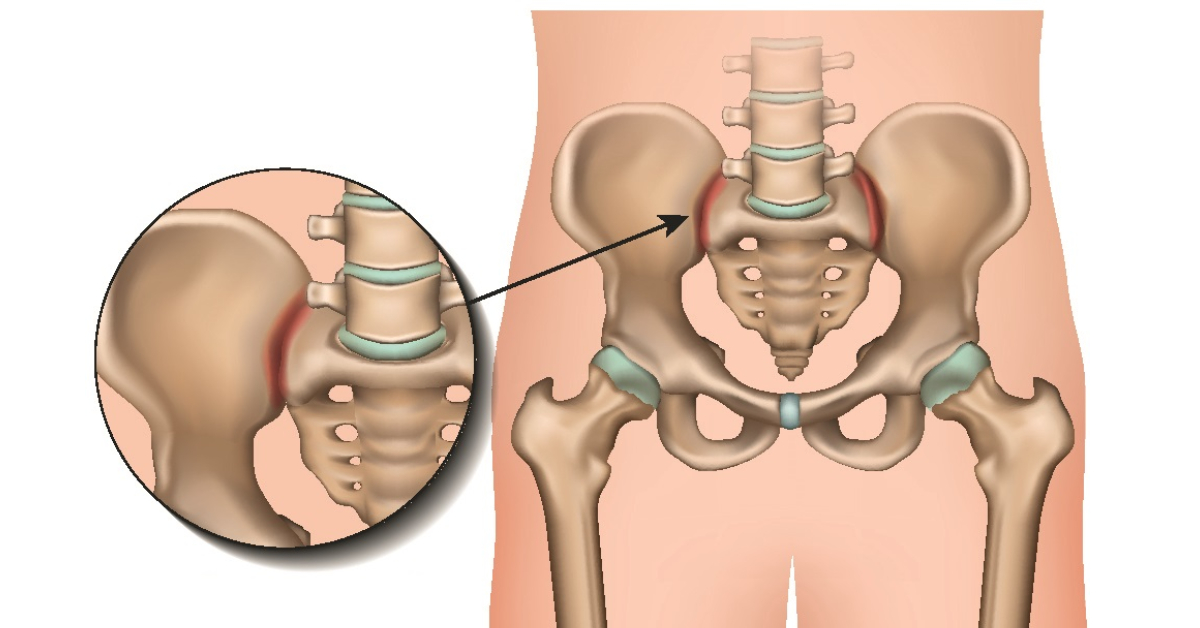What is the correct sleeping position? Is sleeping on the back good?
What is the correct sleeping position?
What is the correct sleeping position? 5 Positions to Help You Sleep Better
Sleeping in the right position is vital for getting a good night’s sleep and restoring strength and energy. Choosing the correct sleeping position can help reduce daily aches and pains and improve your sleep quality. In this article, we will take a look at the best sleeping positions to make the most of your sleep hours.
Sleeping on Your Side:
Studies indicate that adults spend more than half of their sleep time sleeping on their sides. Sleeping on your side may be one of the best positions to improve your sleep. This position can help alleviate back, shoulder, and neck pain and improve spinal alignment. For added comfort, try using an appropriate pillow to support your neck and shoulders.
Sleeping on Your Back:
Sleeping on your back is also a good sleeping position. It helps maintain spinal alignment and avoids the misalignments that can result from side sleeping. Sleeping on your back can be beneficial for those with spinal or back issues. You may also benefit from using a small pillow to support the neck area.
Sleeping on Your Stomach:
Sleeping on your stomach is the least common sleeping position, but some people prefer it. If you sleep on your stomach, make sure to align your spine and avoid arching your lower back to maintain back health. You can use a thin pillow under your abdomen to ensure proper support for sleeping.
Sleeping with Head Elevation:
If you have breathing problems or acid reflux, this position may be preferable for you. By elevating your head with an additional pillow under your head and neck, you can stay comfortable while sleeping and alleviate uncomfortable symptoms.
Sleeping with a Flat Surface:
When you sleep, be sure to use a flat surface for comfort. This helps maintain spinal alignment and reduces pressure on sensitive points. You may prefer to use a comfortable pillow to support your neck, head, and back.
Regardless of the sleeping position you prefer, there are several other things you should do to enhance the quality of your sleep. These may include establishing a regular sleep pattern, avoiding consuming stimulating beverages in the evening, and providing a soothing and dark sleep environment.
In summary, there is no one-size-fits-all perfect sleeping position. You should try different positions and find what suits your needs and helps you get peaceful and comfortable sleep. Consult your doctor if you have concerns or health issues that affect your sleep.
Is Sleeping on Your Back Good?
When it comes to sleeping positions, there are many options available to individuals, including sleeping on the back. Is this position genuinely good, and does it have scientifically proven health benefits? Let’s take a closer look at this topic.
Firstly, it should be mentioned that the right choice of sleeping position depends on personal comfort and medical recommendations for each individual. So, if sleeping on your back brings you comfort and enhances your sleep quality, it can be suitable for you.
However, there are some benefits that people who sleep on their backs can enjoy. Let’s review those benefits:
Even Weight Distribution: During back sleeping, body weight is evenly distributed across all body areas. This helps reduce the pressure exerted by weight on bones and joints, thereby reducing the risk of body aches. Spinal Support: Sleeping on the back is a good position for spinal health, as it provides proper support. This helps maintain spinal alignment and prevents problems like back pain and neck stiffness. Reduced Snoring Issues: Snoring is a common problem for some during sleep. If you have a snoring issue, sleeping on your back might be the optimal position for you. During this position, the air passages in the throat and nose are expanded, reducing the likelihood of blockage and airway constriction, thus preventing snoring. Decreased Acid Reflux Problems: If you have digestive issues like acid reflux, sleeping on your back can be beneficial. This position prevents stomach acid from flowing back into the esophagus, helping reduce heartburn and high acidity.
Despite the mentioned benefits, it’s important to note that sleeping on your back may not be comfortable for everyone. Some groups of people who might not find sleeping on their backs comfortable include:
People who experience severe snoring while sleeping, as this position may worsen snoring. Pregnant women in the third trimester, as sleeping on the back can lead to pressure on major blood vessels and internal organs, potentially negatively impacting blood circulation and fetal health. Individuals with respiratory and heart issues, as back sleeping may lead to breathing disturbances and increased blood pressure due to pressure on these areas.
Furthermore, you should assess the quality of your sleep based on any sleep-related issues you may be experiencing, such as constant daytime fatigue or difficulty waking up in the morning. If you have sleep problems, it is advisable to consult a specialist doctor to evaluate your condition and provide appropriate advice.
In conclusion, good and sufficient sleep is an essential part of our overall health and well-being. Doctors recommend getting an adequate and regular amount of sleep because it plays a crucial role in maintaining physical and mental health. Here, we will take a look at some reasons why doctors emphasize the importance of getting enough and consistent nighttime sleep.
Why Do Doctors Recommend Sleeping at Night?
Restoring Energy and Enhancing Focus: Quality and regular sleep have a significant impact on energy restoration and improve concentration and alertness. If you don’t get enough sleep, you may experience daytime fatigue and an inability to wake up refreshed in the morning. You might feel tired throughout the day and unable to think clearly or perform daily tasks efficiently.
Boosting the Immune System: Good sleep promotes a healthy immune system. When you’re asleep, your body recuperates and fortifies the necessary defense mechanisms to combat diseases and infections. If you lack adequate sleep, your immune system may weaken, making you more susceptible to various illnesses.
Improving Mental and Emotional Health: Quality sleep contributes to improved mental and emotional well-being. Sleep deprivation can lead to anxiety, stress, and increased worries. Therefore, it’s essential to get enough sleep to help regulate emotions and enhance mental health.
Enhancing Memory and Learning: A good night’s sleep has a positive impact on the learning process and memory improvement. Studies have shown that sleep helps consolidate information in memory, boosting the ability to learn and retain information.
Preventing Chronic Diseases: Consistent sleep deprivation is associated with an increased risk of several chronic diseases, including diabetes, heart diseases, obesity, and high blood pressure. Therefore, good sleep is a crucial component of maintaining overall good health.
Promoting Beauty and Youthfulness: Getting adequate sleep contributes to reducing the appearance of wrinkles and skin imperfections, as well as improving the overall look of your skin and hair. While you sleep, your body’s cells are renewed and repaired, giving you a youthful and radiant appearance.
In general, quality sleep is essential for maintaining both physical and mental health. It is crucial to avoid factors that affect sleep quality, such as stress, consuming stimulants before bedtime, excessive exposure to light, and poor room ventilation. Create a comfortable and dark sleep environment and adhere to a regular sleep schedule to maximize the benefits of ideal sleep.
What Are the Symptoms of Poor Sleep?
Getting good and healthy sleep is an essential requirement for maintaining the health of the body and mind. However, many people may suffer from sleep disorders that affect the quality of their sleep and lead to unwanted symptoms that impact their overall quality of life. In this article, we will discuss some symptoms of poor sleep and how to deal with them.
- Difficulty Falling Asleep: You may experience difficulty in falling asleep at night. Finding it hard to calm your mind and relax before bedtime can affect the time it takes for you to fall asleep. This may result from factors such as anxiety, stress, or environmental issues like excessive light or surrounding noise.
- Frequent Nighttime Awakenings: You may find yourself waking up multiple times during the night. This could be due to several factors, including sleep disorders like insomnia, abnormal breathing during sleep, or other medical reasons such as nausea or pain.
- Early Morning Awakening: You may wake up too early before your usual waking time, thus missing out on the essential hours of sleep you need. This could be due to changes in your sleep pattern or health-related reasons such as pain or anxiety.
- Post-Sleep Discomfort: You may feel tired and unrefreshed after sleeping, not waking up feeling energized and ready to start your day. You might have difficulty feeling active and focused during the day.
- Daytime Fatigue: You may experience extreme daytime sleepiness, to the point where staying awake becomes challenging. You might attempt to remedy this by consuming coffee or tea or engaging in physical exercise, but these temporary solutions may not be sufficient to improve your condition.
If you are experiencing symptoms of poor sleep, it is essential to take measures to improve your sleep and overall quality of life. Here are some helpful tips:
- Improve Your Sleep Environment: Ensure that your bedroom is dark, quiet, cool, and comfortable. Dedicate your bed for sleeping only and avoid using it for other purposes.
- Establish a Sleep Routine: Try to go to bed and wake up at the same time every day, even on weekends. This may help promote a healthy sleep pattern.
- Engage in Daily Physical Exercise: Daily physical activity can help with relaxation and improve the quality of your sleep. However, avoid vigorous exercise right before bedtime, as it may make you feel alert and hinder relaxation.
- Avoid Potential Stimulants: Try to avoid consuming stimulants like coffee and other caffeinated beverages before bedtime. It’s also advisable to steer clear of stimulating substances such as smoking and alcohol.
- Consult a Doctor: If your symptoms persist and significantly impact your quality of life, it may be best to consult a specialist doctor for a proper diagnosis and treatment.
Incorporating these strategies into your daily routine can help improve the quality of your sleep and alleviate symptoms associated with poor sleep.
It is crucial to pay significant attention to your sleep and effectively address symptoms of poor sleep. Keep in mind that these tips are general suggestions, and individual needs may vary. Seeking professional advice may be advisable if the problem persists and negatively impacts your daily life.
Can Night Sleep Be Compensated During the Day?
Many people may experience insufficient nighttime sleep due to lifestyle changes or personal circumstances. In an attempt to make up for lost hours of sleep, some consider forfeiting nighttime sleep and compensating for it during the day. Is this a viable solution, or could it fall short of addressing sleep deprivation adequately?
In reality, compensating for lost nighttime sleep by napping during the day is not as straightforward as some may believe. There are specific biological cycles that influence sleep patterns and help maintain biological balance. Disrupting this balance can make it challenging to fully compensate for daytime sleep.
Unfortunately, attempting to compensate for lost sleep during the day can negatively affect your natural sleep pattern and cause nighttime sleep problems. Once the body becomes accustomed to daytime napping, returning to a regular nighttime sleep pattern may become difficult. This can further compound sleep deprivation.
According to experts, fully compensating for missed sleep is extremely difficult. It is recommended to divide the process of sleep compensation over several days and avoid it interfering with your regular nighttime sleep, rather than relying solely on daytime naps.
There are some strategies that can be followed to properly compensate for lost sleep:
- Prioritize Nighttime Sleep: Allocate sufficient time for nighttime sleep and maintain a consistent sleep schedule regularly.
- Avoid Daytime Napping: Try to minimize daytime napping as much as possible and dedicate time to relaxation instead.
- Engage in Regular Exercise: Regular physical activity can help improve the quality of nighttime sleep.
- Steer Clear of Stimulants: Avoid consuming strong stimulants such as coffee, tea, and alcohol before bedtime.
- Relax Body and Mind Before Bed: Use relaxation techniques like deep relaxation and deep breathing to help prepare yourself for sleep.
Sleep needs vary from person to person, and some individuals may require more sleep at night compared to others. Therefore, it’s important to understand your body’s needs and consistently strive to meet them.
Humans should not rely on compensating for missed nighttime sleep by napping during the day. Instead, the focus should be on improving the quality of nighttime sleep and supporting the body’s natural sleep pattern. Quality sleep is not just physical rest but is an essential part of overall health and well-being.
Is 6 Hours of Sleep Healthy?
Undoubtedly, good and sufficient sleep is a cornerstone of a healthy life. While there are recommendations advocating for 7-8 hours of sleep per night, many people face time constraints or life pressures that prevent them from getting this amount of sleep. So, what is the impact of only getting 6 hours of sleep on the body?
Several studies suggest that 6 hours of sleep may not be sufficient to provide the body with the rest and renewal it needs. During sleep, the body recharges with energy, repairs tissues, enhances cognitive and emotional functions. If the body doesn’t get adequate sleep duration, these functions may not operate efficiently.
Effects of 6 Hours of Sleep on the Body:
- Reduced Focus and Attention: Adequate sleep is essential for the ability to focus and maintain proper attention during the day. Insufficient sleep can make it difficult to concentrate at work or in studying, negatively impacting performance.
- Increased Risk of Diseases: Studies indicate that insufficient sleep hours can increase the risk of diseases such as heart conditions, stroke, high blood pressure, and diabetes.
- Weakened Immune System: Sufficient sleep boosts the immune system and helps resist diseases. Sleeping only 6 hours can lower the immune system’s effectiveness and increase susceptibility to various illnesses.
- Impacts on Memory and Learning: Good sleep is crucial for maintaining learning and memory capabilities. Lack of sufficient sleep can lead to difficulties in comprehension, recall, and learning.
- Emotional Effects: Short sleep duration may lead to increased stress levels and depression. Adequate sleep plays a significant role in mood regulation and emotional well-being.
Healthy Tips:
While 6 hours of sleep may not be ideal, there are times when it’s necessary and cannot be ignored. Here are some healthy tips to improve your sleep, even if you need only 6 hours of sleep:
- Set a consistent bedtime and wake-up time, even on weekends.
- Create a comfortable, dark, and quiet sleep environment.
- Avoid caffeine-containing beverages before bedtime.
- Engage in regular physical exercise but avoid strenuous exercise right before bedtime.
- Follow a healthy and balanced diet.
- Reduce electronic device usage before bedtime, as screen light can affect sleep quality.
If you’re experiencing insufficient sleep hours, it’s crucial to make lifestyle changes and strive to get the sleep you need. Remember that healthy sleep plays a significant role in your overall health and well-being, so prioritize your sleep and aim for a good night’s rest every night.
What’s the Difference Between Nighttime and Daytime Sleep?
Sleep is one of the most critical processes in the human body, playing a crucial role in maintaining both physical and mental health. While many people prefer nighttime sleep, some individuals feel the urge to nap during the day. In general, there are several differences between nighttime and daytime sleep that make them somewhat distinct.
Here, we will explore the key differences between these two types of sleep:
Biological Activity: Nighttime Sleep: Sleeping at night is more in sync with the body’s natural biological rhythms. During nighttime sleep, the brain releases melatonin, a hormone that promotes drowsiness and aids in preparing for sleep. Daytime Sleep: Daytime sleep is less aligned with melatonin levels, making it challenging for people to sustain sleep for extended periods.
Sleep Quality: Nighttime Sleep: Nighttime sleep is associated with better quality, as the nighttime environment tends to be quieter and more conducive to relaxation and sound sleep. Daytime Sleep: Many individuals who nap during the day may experience difficulties due to noise and discomfort, which can hinder their ability to sleep deeply.
Health Effects: Nighttime Sleep: There is scientific evidence suggesting that nighttime sleep enhances immune functions, cell renewal, memory, and concentration. Daytime Sleep: Daytime sleep may be associated with certain health issues, such as disruptions in nighttime sleep and alterations in the body’s natural biological patterns, leading to decreased energy levels and daytime alertness.
Sleep Adjustment: Nighttime Sleep: It is typically easier to adjust nighttime sleep patterns, as many people adhere to a schedule of sleeping at night and waking up in the morning, providing stability for the body and mind. Daytime Sleep: Adjusting daytime sleep patterns can be more challenging, as external factors like noise or life obligations may interfere with the ability to sleep well during the day.
Nighttime sleep is generally more in harmony with the body’s biological nature and promotes overall health and well-being. However, there are times when special circumstances necessitate daytime sleep, and in such cases, it is essential to create a suitable environment and adjust sleep patterns to ensure the quality of rest and make the most of this shorter sleep period.
What Is Unhealthy Sleep?
Many individuals experience sleep problems that affect their overall health and well-being. Unhealthy sleep is defined as any sleep that does not meet the body and brain’s fundamental needs for rest and relaxation. Instead of feeling refreshed and energetic upon waking up, individuals experiencing unhealthy sleep often feel tired and fatigued. Understanding the potential causes of unhealthy sleep and learning about ways to improve your sleep can be crucial for enhancing your daily life quality.
Negative Factors Affecting Sleep:
Several factors can contribute to the development of sleep problems and unhealthy sleep. Here are some common factors:
- Sleep-Stimulating Activities at Bedtime: Engaging in stimulating activities before bedtime, such as watching TV, using computers, playing electronic games, or socializing, is a negative factor that affects healthy sleep. These activities stimulate the brain and keep it engaged, making it challenging to relax and prepare for sleep.
- Lack of Relaxing Activities Before Sleep: Studies recommend engaging in calming and relaxing activities before bedtime, such as relaxation exercises, reading, or listening to soothing music. Failing to engage in calming activities before sleep can make it more difficult to relax and prepare for sleep.
- Health Conditions and Disorders: Certain health conditions and disorders, such as anxiety and depression, can affect sleep and make it unhealthy. Anxiety and depression can increase the difficulty of relaxing and sleeping well.
- Noise and Unfavorable Conditions: External noise and unfavorable conditions, such as room temperature, can disrupt sleep and make it unhealthy. Noise can disturb individuals and hinder deep sleep and the necessary relaxation.
- Hormonal Sleep Changes: Changes in the hormones responsible for regulating the daily sleep-wake cycle can make sleep unhealthy. These hormonal fluctuations can significantly impact sleep, making it difficult to achieve deep, restful sleep and wake up feeling refreshed and alert.
The Health Impact of Unhealthy Sleep:
Unhealthy sleep affects various aspects of an individual’s health and daily life. Some of these effects include:
- Negative Impact on Daily Life: Individuals who do not get sufficient sleep often experience difficulties with attention and concentration during the day, which can affect their overall performance and productivity at work or in school.
- Increased Risk of Diseases: Unhealthy sleep can increase the risk of developing chronic diseases such as heart disease, diabetes, and high blood pressure. Adequate sleep is essential for the health of the cardiovascular system and the immune system.
- Impaired Mental and Physical Performance: Unhealthy sleep is a source of fatigue and physical weakness, which can affect cognitive abilities, memory, and conscious thinking. Proper sleep plays a crucial role in restoring and renewing mental and physical capabilities.
- Deterioration of Emotional and Psychological Well-being: Unhealthy sleep can lead to emotional and psychological disturbances, increasing the risk of depression, anxiety, and mental stress. Good sleep plays a vital role in maintaining emotional and psychological balance.
How to Improve Sleep Quality:
There are several ways to improve your sleep and achieve healthy sleep. Here are some methods that can help you with that:
- Create a Pre-Sleep To-Do List: Before going to bed, write down your daily tasks, organize them, and gather everything you need for the next day. This helps clear your mind and alleviate anxiety and stress that can interfere with sleep.
- Practice Relaxing Activities Before Bed: Prior to bedtime, engage in activities that help you relax and prepare for sleep. These activities may include relaxation exercises, reading, listening to soothing music, or listening to meditation and relaxation audio clips.
- Set up a Suitable Sleep Environment: Provide suitable conditions in the room where you sleep, such as using blackout curtains to reduce light, maintaining a comfortable temperature, and using earplugs or white noise machines to minimize external noise.
- Maintain a Sleep Schedule: Try to keep a regular sleep schedule, waking up and going to bed at the same time every day. This helps your body adapt to a sleep-wake routine and improves sleep quality.
- Adopt Healthy Habits: Avoid consuming caffeinated beverages like tea and coffee in the evening. Avoid heavy, rich meals before bedtime. Regular physical exercise during the day is also recommended to enhance sleep quality.
Consulting a Physician:
If sleep problems persist, it is advisable to consult a specialist physician who can provide appropriate advice and guidance. They may refer you to a sleep specialist if necessary.
Healthy sleep is a fundamental element for maintaining good health and a high quality of life. Many negative factors can affect sleep and make it unhealthy. It is essential to try to improve your sleep habits and implement the tips mentioned in this article to achieve better sleep quality and overall well-being. Ultimately, individuals should consult a specialist physician if sleep problems continue to negatively impact their daily lives.





















